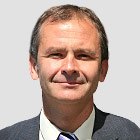This week’s report by the independent panel on Gosport War Memorial hospital is shocking to those who have not so far been involved. I had the privilege of meeting some of the families back in 2008 when Action against Medical Accidents arranged legal representation for some of them at the inquests of their family members, and began to campaign for an independent inquiry and release of information that was being suppressed.
Some of them have now been trying to expose what went on and demanding action for more than 20 years. They have now been totally vindicated, and have received apologies from the government and some of the organisations involved. While that may bring some degree of relief, all of us who are passionate about patient safety need to know what will actually change as a result.
The way the independent panel pulls together all the key elements of this sorry episode in one report has had a dramatic effect. It was shocking enough that the hospital seemed to have a “disregard” for human life, and knowingly oversaw the inappropriate administration of huge doses of powerful pain killers which led to shortening of life. But that shock was heightened by the way everyone from individual doctors and nurses to management, commissioners, health authorities, regulators, the police, and even ministers allowed things to continue that way for so long, and put their own interests before the patients.
So what happens now? Neither the report nor the government’s response give us much cause for optimism. The health secretary, Jeremy Hunt, talked about how things have changed for the better since the original events at Gosport. He rightly pointed out that following the Mid Staffordshire public inquiry the government (finally) brought in the statutory “duty of candour”. Yet even as he spoke, a draft bill he is putting forward – the health service safety investigations bill – is being scrutinised by a select committee. It is hugely controversial, as it would introduce something it calls a “safe space” in patient safety investigations. This is defined in the bill as a “prohibition” on sharing any information obtained in an investigation.
That means not even a patient who was the victim of an incident, or any of their family, would be party to that information. Nor could they use any facts in the final published report to seek justice through the civil courts or tribunals. There doesn’t seem much candour in that. This measure, if it is allowed to go ahead, would destroy any trust that patients or families could have in NHS investigations, and lead to a more adversarial culture where people turn to legal action and seek disciplinary action straight away.
Criminal investigations and prosecutions may follow what has happened at Gosport. There certainly needs to be accountability, and that should apply to people in positions of authority at every part of the system that allowed this scandal, and subsequently fobbed off families and staff who raised concerns, while trying to keep a lid on it. There will be people in positions of authority in the NHS today who presided over this. Accountability should extend to those in the Department of Health – including ministers. No one should kid themselves that Gosport is irrelevant to today’s NHS.
However, the systemic and cultural problems visible there are still an issue today, and addressing them will be much more helpful than punishing individuals. The themes from Gosport are consistent with more recent scandals such as Southern Health, Morecambe Bay and of course Mid Staffordshire. We need to provide meaningful protection for staff who try to do the right thing by reforming the law to protect whistleblowers, and create a Freedom to Speak Up Guardian (or new body) with more teeth to be able to support and protect staff. We need to ensure patients and families are listened to, and are fully involved in investigations. We need to promote and enforce the duty of candour – not undermine it. A good start would be to get rid of the inappropriately named “safe space” provisions in the draft bill.
• Peter Walsh is chief executive of Action against Medical Accidents











